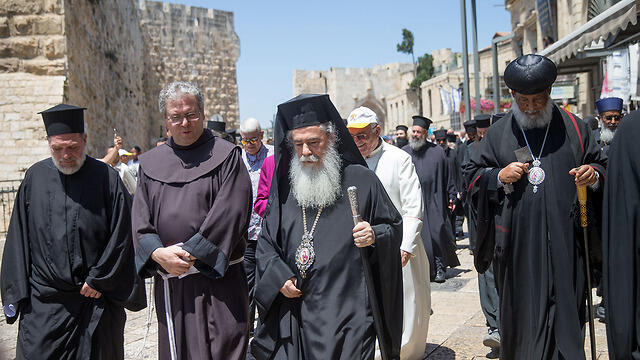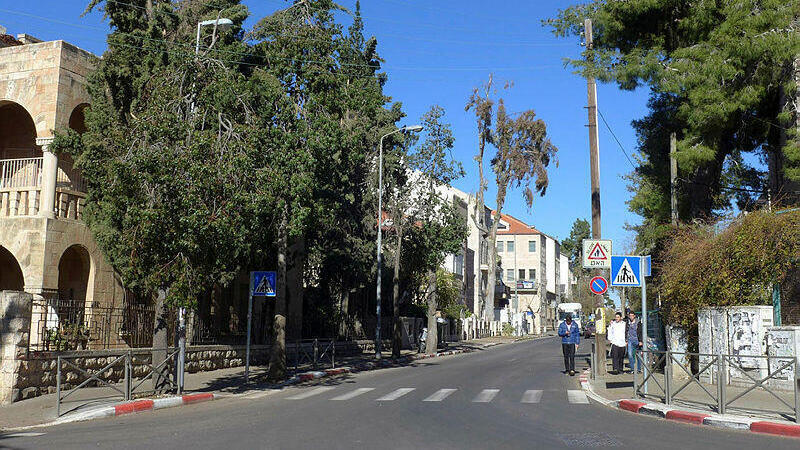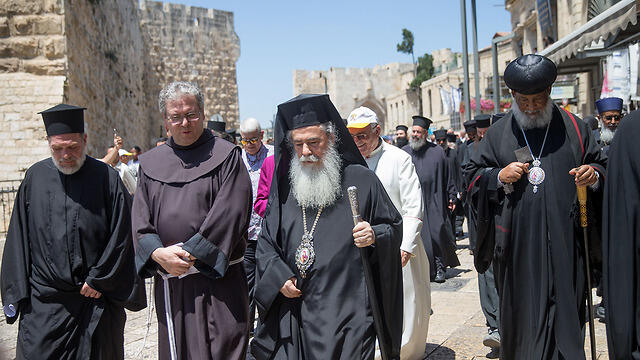The Supreme Court ended this week a 25-year legal battle over disputed church land in Jerusalem, siding with the Greek Orthodox Patriarchate and overturning a $13 million payment order to the Jewish National Fund.
In its ruling Tuesday, the court accepted the Patriarchate’s appeal, finding no binding agreement had ever been reached between the church and Himnuta, a JNF subsidiary. The decision nullifies an earlier District Court ruling that ordered the Patriarchate to pay for funds allegedly stolen from Himnuta.
2 View gallery


Theophilos III, the current Patriarch of the Orthodox Church of Jerusalem
(Photo: Ohad Tzuigenberg)
The court also reversed a previous ruling on legal fees, awarding costs in favor of the Patriarchate instead of against it.
The case dates back to 2000, when a major real estate fraud involving 520 dunams (128.5 acres) of church-owned land in Jerusalem’s Rehavia-Talbiya neighborhood came to light. Three men—broker Yaakov Rabinowitz and associates David and Zisman Morgenstern—were convicted of presenting forged documents and falsely claiming the Greek Orthodox Patriarchate had agreed to a land sale.
Himnuta transferred $20 million to the trio, but the money never reached the Patriarchate. Among the fabricated materials Himnuta received were documents bearing what appeared to be the signature and official seal of Patriarch Theophilos III—both later confirmed as forgeries.
The Patriarchate responded by filing suit in the Jerusalem District Court, seeking a declaration that no real estate deal had ever been made and that the documents presented by the brokers were forgeries. In 2013, the court ruled decisively in the church’s favor, declaring the transaction entirely fraudulent and legally void. “No valid agreement was reached between the plaintiffs and Himnuta,” the ruling stated. “The transaction documents carry no legal force, and Himnuta acquired no rights through them.” The three businessmen had already been indicted and were ultimately convicted.
2 View gallery


Rehavia neighborhood in Jerusalem
(Photo: Shlomi Cohen)
Despite the ruling, in 2007 Himnuta attempted to negotiate a financial settlement with the Patriarchate. At a meeting in the office of the late attorney Yaakov Weinroth, the company proposed that the Patriarchate pay $13 million in exchange for Himnuta dropping its legal claims and removing a cautionary note it had registered on the property. The sum represented the unrecovered portion of the $20 million Himnuta had transferred—after it succeeded in retrieving $7 million from overseas accounts.
Later in 2007, the Patriarch received official recognition from the Israeli government. Around that time, Himnuta sought to resume talks with the Patriarchate and invited its representatives to another meeting at the David Citadel Hotel in Jerusalem. The Patriarchate, for its part, indicated that it lacked sufficient funding and effectively withdrew from the discussions.
In 2011, Himnuta filed a lawsuit with the District Court asking it to recognize the binding validity of the proposed settlement. Over a decade later, the District Court ruled in Himnuta’s favor, claiming that the Patriarchate withdrew from negotiations in bad faith.
The Patriarchate appealed this decision to the Supreme Court. Himnuta also filed an appeal, focusing on the compensation amount. The Supreme Court accepted the Patriarchate’s appeal, ruling that no agreement had been concluded between the parties and that the Patriarchate’s withdrawal from negotiations did not constitute bad faith, but rather an exercise of its right not to enter into an unwanted contract.
